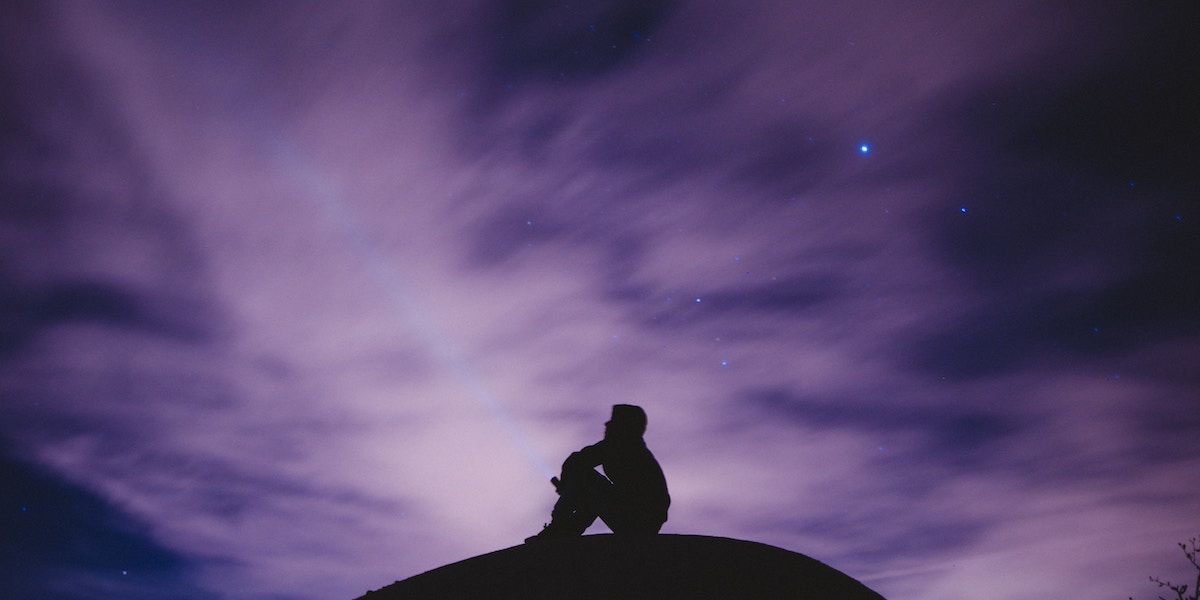READ ON TO DISCOVER:
- Why Muhammad Ali didn’t believe his own hype
- How Winston Churchill created urgency around crucial projects
- Why George Clooney is worried about our communities
Platon is one of the most renowned photographers in the world today, having taken portraits of dozens of celebrities and world leaders. Adam Grant is a leading psychologist, the top-rated professor at Wharton, and a curator of the Next Big Idea Club. Adam recently sat down with Platon at Davos to ask him about how he gets presidents and dictators to open up for the camera, and about why ordinary citizens hold all the power.
This conversation has been edited and condensed. To view the full version, click the video below.
Adam: Platon, you have one of the most interesting jobs on earth—you get to interview celebrities and world leaders. Is it true that you’ve photographed more world leaders than any human in history?
Platon: That’s what they tell me. I’ve seen power up close and personal, and I’m fascinated by what makes a really great leader. Often, I’ve seen seduction. I’ve seen intimidation. I’ve seen authority. I’ve seen charisma. There’s a secret ingredient I don’t normally see, and that’s in a word called “service.” I believe that, to be a great leader, you have to think of yourself as a servant of the people. That’s a very hard thing to do, because you have to take this strength and charisma, and mix it with humility. I think there’s only a handful of people in history who were ever able to do that.
I’m now looking for the next generation of inspirational leaders. Who is the next Martin Luther King? Who is the next Gandhi? Who is the next Mandela? Those leaders are out there, but their voices are not getting heard. My job is to find them and, whether they’re emerging or established, amplify their voices, give them an enhanced platform so that they can lead us to truth and righteousness.
Adam: I love the servant leadership theme. I’ve spent most of my career studying the differences between givers and takers, and I always think of the leaders who are givers as servant-leaders, who say, “This is not about me—my job is to use my power for good, and to help other people succeed.”
Platon: When someone acquires power, it’s not that they adapt and change—it actually reveals who they really are. There are very few boundaries that you can’t just step over, so all you have is your own moral compass. That can be very liberating, but that can also be very dangerous.
I’ve seen bad leadership—I’ve had intimate moments with people like Gaddafi. Many of the world leaders I’ve photographed are now either dead, in jail, or under investigation for corruption.
“I believe that, to be a great leader, you have to think of yourself as a servant of the people.”
But I’ve also had great moments with the most incredible people. I spent a day with Muhammad Ali. He was very ill at that time, suffering from Parkinson’s Disease. He had almost lost control of his arms. I have a good luck American flag, which I always carry with me in my suitcase, and I put it over his shoulders. As soon as he felt the flag touch his shoulders, he felt compelled to lift his hands up into the classic defiant boxing pose, one last time. His wife burst into tears, because she had not seen him do that in quite a while.
I said to him, “Muhammad, you are the greatest. How can my generation be as great as your generation had to be during the Civil Rights era?” He couldn’t speak very well because of his condition, so he mumbled. I got close to him, and he whispered in my ear. He said, “I have a confession to make.” I said, “What is it?” He said, “I wasn’t as great as I said I was.”
Trending: Best Happiness Books of 2025 (So Far)
I was gutted, devastated. That was the biggest confession I had ever heard in my life. Then he said, “I’ll tell you what was great, and it wasn’t me. It was that people saw themselves in my struggle. People saw themselves in my story.”
Then he says, “If you can get people to see themselves in your story, or the story that you put forward into the world, then you have a chance of achieving greatness. That is never you personally—that is something much more important, called bridge-building.” Then a light bulb went off, because I realized that storytelling is how we all come together.
I once spent the day with George Clooney in his garden, and I said to him, “George, I’d like to know how you see the times we’re in. How would you describe this moment in history?” He said, “We have more connectivity, more information than we’ve ever had before, but somehow we seem to know less.”
He said, “If you want to get the news today, you’re probably going to go to an online source that confirms what you already believe. The danger is that you become trapped in your own echo chamber, your own filter bubble.”
Then he said, “That magical thing called a shared experience—where we all come into a central space and debate and grow and make friends—that’s rapidly disappearing.” We need to recreate that shared experience once again.
“If you can get people to see themselves in your story . . . then you have a chance of achieving greatness.”
Connectivity is important, but it’s not something you can just do online. You have to be courageous, and you have to dare to connect with someone in person. If I say something that hurts you or offends you, I have to be present so I can see how it affected your spirit. If I hurt you, then I have the responsibility to correct my mistake. But if I just send a message out, and it was hurtful to you, I won’t see you, and I won’t know. Also, if it was inspirational to you, and I made you feel good, I won’t know. I won’t get that beautiful benefit of seeing how I made you feel good.
I believe that, now more than ever, we have to heal the fractures in society. Media and social media have done a lot of damage, but perhaps social media can now correct itself, and find new ways of connecting people, but more intimately than it did before.
Adam: I’m really curious about how to get powerful people to open up, and be a little bit more vulnerable or authentic. The Muhammad Ali story you told really speaks to the importance of leaders being able to do that, because if somebody is perfect and polished—larger than life—then it’s tough for me to see myself in their story. When you sit down with a leader, how do you get them to be real, especially because they’re literally posing for you?
Platon: When I’m in the presence of someone like Putin, the pressure is intense. There’s a sense of intimidation, a sense of authority. But I can’t allow that pressure to affect my humanity. That doesn’t mean I’m disrespectful to anyone, but power never worked on me. I always saw people as people. Everybody is a human being.
Martin Luther King always said, “Be aware of the illusion of supremacy.” That really stuck in my mind, that no one is supreme. People might do extraordinary things, but they are still a person. The human rights champions I’ve worked with around the world, they do extraordinary things—superhuman things—but they’re not superhuman. They’re just like us, and that makes you realize how great they really are. They hurt as much as we hurt. They have as many doubts as we have. They just push themselves harder.
Trending: Why Rest is the Biggest Productivity Hack for Your Brain
When I photographed Mark Zuckerberg, I went into his office to set up. As I’m tweaking my lights waiting for him to walk in, I noticed a poster on the wall. It was hand-painted in red letters, and it said, “What would you do if you weren’t afraid?” It stopped me in my tracks. What would you do? It’s one of the most powerful questions you’d ever dare to ask yourself. Would your life be different? Would your career path be different? Would the relationships in your life be different?
“What would you do if you weren’t afraid?”
Don’t think that I’ve got the answers, because fear has played a part in my life. But the important thing is that we acknowledge that we all have fear and anxiety. The question is, how much do you care about breaking through your own barriers and daring to reach out with a hand of friendship? That takes courage, but the rewards are extraordinary.
Adam: What do you notice when you observe the body language of powerful people?
Platon: Body language is an extraordinary thing. One of the most difficult shoots I ever did was of professor Stephen Hawking, because I had no body language to work with. He was very, very ill when I photographed him. In fact, it was his last photo shoot, just like Muhammad Ali.
There was only one tiny part of his body that still worked, which was a little muscle underneath his eye. They placed a sensor at the bottom of his glasses that picks up movement, and with that movement, he moves a cursor on the laptop across an alphabet, and he chooses a letter. Then he builds a word, then a sentence, then a paragraph. That’s how he constructed his epic statements about space and humanity and history.
It was very difficult for me to read how he was feeling, because I couldn’t see any [body language]. I said to him at the end of the shoot, “Professor, I’ve seen how hard it is for you to communicate with the world, but I would be so privileged if you would give me one word of wisdom. One word from you is worth a million words from anyone else.”
His nurse stepped forward and said, “Please don’t ask him to do that. He’s exhausted. And often when he types these days, it’s not even accurate.” I apologized and turned away.
Then I heard beep, beep, beep. I turned around, and he was typing. We all leaned into his laptop to see where the cursor would go. It went all the way to the letter W. “W,” said the nurse as she scratched her head. “That’s definitely not the beginning of one of his favorite words. I’m sure this is not accurate.”
“Power is an empty vessel. What counts is what we do with it.”
Then he started the second letter. Beep, beep, beep… The letter O. Then he started the last letter. Beep, beep, beep… All the way back to the letter W. The nurse threw up her hands in frustration. She said, “I’ve never had a photographer who is so rude with the professor, forcing him to do all this stuff when he’s exhausted.” I said, “Hold on, that’s not inaccurate. He just gave me the word ‘Wow.’ That’s the kind of word my kids would use, an optimistic word about the glory, the majesty, the privilege of life.”
Isn’t it amazing that a man who faced so much adversity still looked at the world through the eyes of wonder? Despite his challenges, he was an optimist. Now is the time for that—we need to rekindle the spirit of optimism.
Trending: How to Break Free From the Ambition Trap
Adam: How do you decide who to photograph? Have you ever turned down a request because of moral concerns?
Platon: I have never turned down a request. I don’t believe that it’s my position to make judgments—that’s for society to deal with. My job is to document what happened during our time. I think it’s important to acknowledge who corrupted power, and who enhanced it.
Adam: I love the reversal of that. Instead of saying that power corrupts, saying that you could actually corrupt power.
Platon: Well, power is an empty vessel. What counts is what we do with it. The most inspirational people in the world have done incredible things.
This is a moment when you’ve got to ask yourself, “Are you a bystander, a mere moth flying around a flame? Or are you an upstander, somebody who lights the darkness with positive action?”
Winston Churchill had a sticker, and he used to put it on all the important documents in the war rooms during the Second World War. It was called “Action this day.” If he put that sticker on a document, his team had to implement that request immediately. I put that sticker on positive, courageous, compassionate action. I say, “Action this day.” We all have to play a part—you can’t be empowered with social media and technology and not carry your own sense of responsibility. If you want to be empowered, then you’ve also got to be responsible.
I think the most responsible, powerful people are actually the ordinary people like us, because they’re voters and customers. Perhaps the powerful are not really the people at the top. The powerful are at the bottom, who say, “I will not buy your product unless I know it’s a good product, and it hasn’t hurt anyone in its construction. I will not vote for you, because you have a bad voting record when it comes to human rights.” The people at the top just follow us. We’re the ones with the authority—we just have to realize that.
Ready for more big ideas like this? Join the Next Big Idea Club today!



























